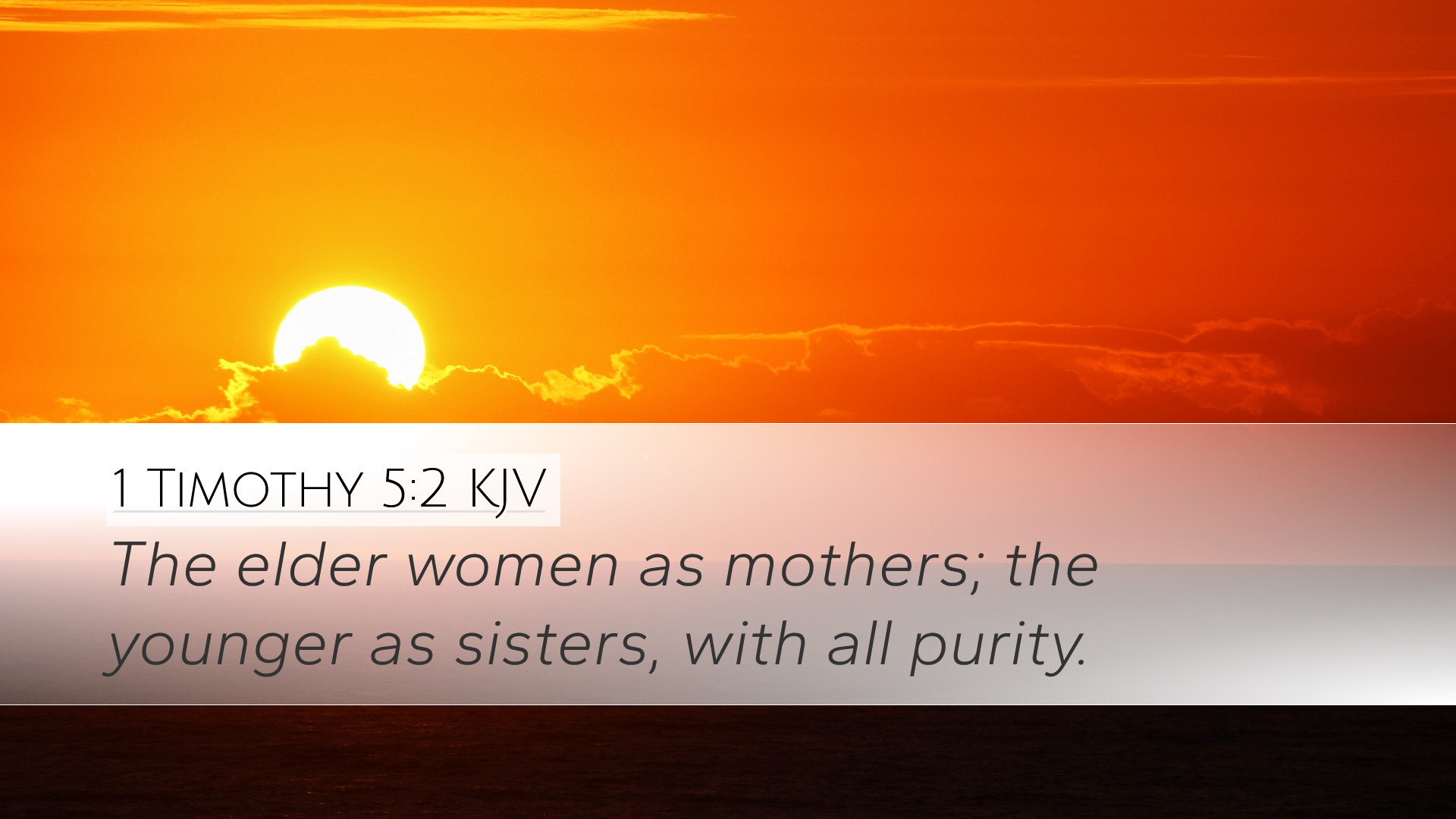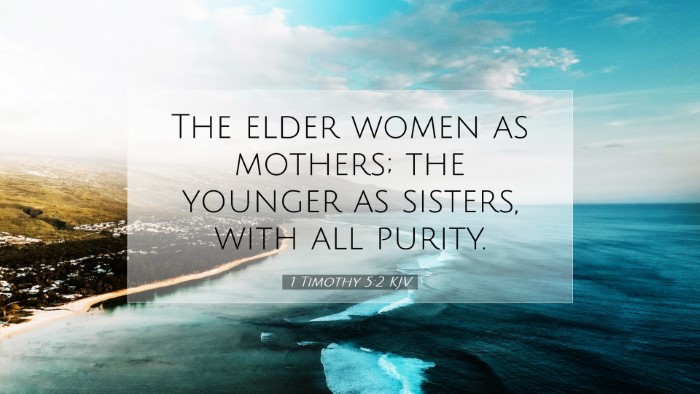Commentary on 1 Timothy 5:2
Bible Verse: "The elder women as mothers; the younger women as sisters, with all purity."
Introduction
The verse 1 Timothy 5:2 presents vital instructions regarding interpersonal relationships within the Christian community, particularly focusing on the treatment of women. This verse underscores the values of respect, purity, and familial affection that should characterize these relationships. Through an exploration of various public domain commentaries, we shall delve into the theological and practical implications of this verse.
Contextual Background
This verse forms part of Paul's epistle to Timothy, addressing various aspects of church order and personal behavior within the congregation in Ephesus. The Apostle Paul emphasizes a code of conduct that fosters respect, care, and purity among believers, particularly in relationships that can easily become complex.
Analysis of Key Phrases
The Elder Women as Mothers
Paul's instruction to treat older women as mothers denotes immense respect and honor. According to Matthew Henry, the elder women in the church should be looked up to, offering wisdom and guidance akin to that of a mother. This familial reference suggests a nurturing environment where elder women play a crucial role in mentoring the younger generation.
Albert Barnes adds that this directive promotes an atmosphere where older members are regarded with reverence, shining a light on the importance of their experience and spiritual maturity. Such relationships can foster a multiplicative effect of intergenerational wisdom within the church.
The Younger Women as Sisters
In treating younger women as sisters, Paul emphasizes the need for purity and respect in all interactions. Adam Clarke elucidates that this phrase encourages a brotherly love that safeguards the dignity and integrity of younger women. The implication here is that relationships should not merely be casual or superficial but should embody familial love, with all its protective qualities.
This approach promotes an atmosphere of accountability where younger women feel safe and valued. The call for purity places the onus on older men to behave honorably, thereby cultivating a community where spiritual and moral standards are upheld.
Theological Implications
The instructions in 1 Timothy 5:2 stand as a reflection of the broader theological themes of the New Testament concerning community and relational ethics. It sends a clear message that the body of Christ is to operate under the principles of love, respect, and accountability.
Matthew Henry highlights that Paul’s directives resonate with Jesus' teaching on loving one another and resulting in a community that genuinely embodies the fruits of the Spirit. There is a call to see every relationship as an opportunity for witness—reflecting Christ's love in practical ways.
Practical Applications
- Mentorship Programs: Establishing formal mentoring programs within the church can facilitate the nurturing relationships suggested in this verse, allowing older women to guide younger women.
- Promotion of Purity: Encouraging pastoral guidance on establishing boundaries and respectful interactions can promote a culture of purity and honor within the church.
- Education and Training: Offering training on how church members can relate to each other in a familial way can help reinforce these biblical principles in everyday interactions.
Conclusion
In summary, 1 Timothy 5:2 provides profound guidance for the Christian community. The verses advocate for a family-oriented approach to relationships, where elder women are treated with the reverence due to mothers and younger women with the love afforded to sisters. Through this structure, the church can exemplify the better nature of humility, respect, and purity that Christ calls us toward. The insights gleaned from public domain commentaries engage pastors, students, and scholars alike in a deepened understanding of how these dynamics play a crucial role in healthy church life.


